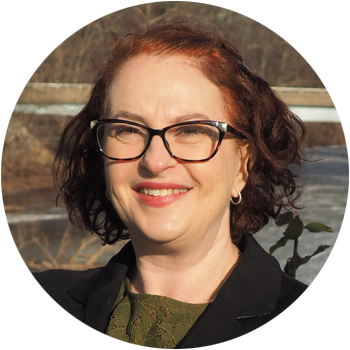3 Hours | 3 CEs
This on-demand professional training program on That Which We Do Not Know: Autism and Threat is presented by Stephanie Leite, Ph.D.
What are we scared of? We are scared of the unknown, of things that are different, of things we do not understand. So autistic people are often the focus of threat assessment investigations. To the neurotypical eye, autistic behavior can be unsettling, and unsettling behavior can seem dangerous.
Diving into the topic, Dr. Leite covers general information on ASD and crime, carefully explains the difference between ASD and psychopathic behavior, and uses research to identify factors that create greater and less risk in the population. Participants review the Sandy Hook Advisory Commission’s report, applying new knowledge to the report. The program concludes with a tabletop exercise utilizing breakout rooms for an interactive and boisterous finale.
Dr. Leite is a psychologist who specializes in threat assessment and management. She has had a disproportionate number of referrals that include individuals who are socially different from others, who have been diagnosed with autism, and who make others uneasy.

Intended Audience
This on-demand professional training program is intended for mental health and other allied professionals

Experience Level
This on-demand professional training program is appropriate for beginner, intermediate, and advanced level clinicians.

CE / CPD Credit
APA, ASWB, CPA, NBCC Click here for state and other regional board approvals.
Learning Objectives
Upon completion of this program you will be able to:

Describe the difference between autism and psychopathic behavior

Describe the warning signs of increased risk of violence in an ASD population

Describe the established questions and rubrics for determining the level of risk

Describe a threat assessment model to explain the risk of violence

Curriculum
1. Introduction
2. Background Data/Stats
3. Three Case Studies from History
4. Sandy Hook
5. Isla Vista
6. Refocus
7. Introducing the Team
8. Tabletop George
9. Breakout Introduction
10. Small Group Discussion - 1
Develop a Specialty Area of Practice
Transforming mental health professionals into experts
Expert Instructors
Professional training developed and delivered by the field's leading experts

CE Credit
Earn CE credit for meaningful professional training that will elevate your practice
Convenience & Flexibility
Learn at your own pace, from wherever you might be!
CE Sponsorship Information
Palo Alto University, Continuing and Professional Studies (CONCEPT) is approved by the American Psychological Association to sponsor continuing education for psychologists. Palo Alto University, Continuing and Professional Studies (CONCEPT) maintains responsibility for this program and its content. Palo Alto University, Continuing and Professional Studies (CONCEPT) is approved by the Canadian Psychological Association to offer continuing education for psychologists. Palo Alto University, Continuing and Professional Studies (CONCEPT), SW CPE is recognized by the New York State Education Department’s State Board for Social Work as an approved provider of continuing education for licensed social workers #SW-0356 and the New York State Education Department’s State Board for Mental Health Practitioners as an approved provider of continuing education for licensed mental health counselors. #MHC-0073. Palo Alto University, Continuing and Professional Studies (CONCEPT) has been approved by NBCC as an Approved Continuing Education Provider, ACEP No. 6811. Programs that do not qualify for NBCC credit are clearly identified. CONCEPT Professional Training, #1480, is approved to offer social work continuing education by the Association of Social Work Boards (ASWB) Approved Continuing Education (ACE) program. Organizations, not individual courses, are approved as ACE providers. State and provincial regulatory boards have the final authority to determine whether an individual course may be accepted for continuing education credit. CONCEPT Professional Training maintains responsibility for this course. ACE provider approval period: 11/22/23-11/22/26. Social workers completing this course receive (clinical or social work ethics) continuing education credits.

